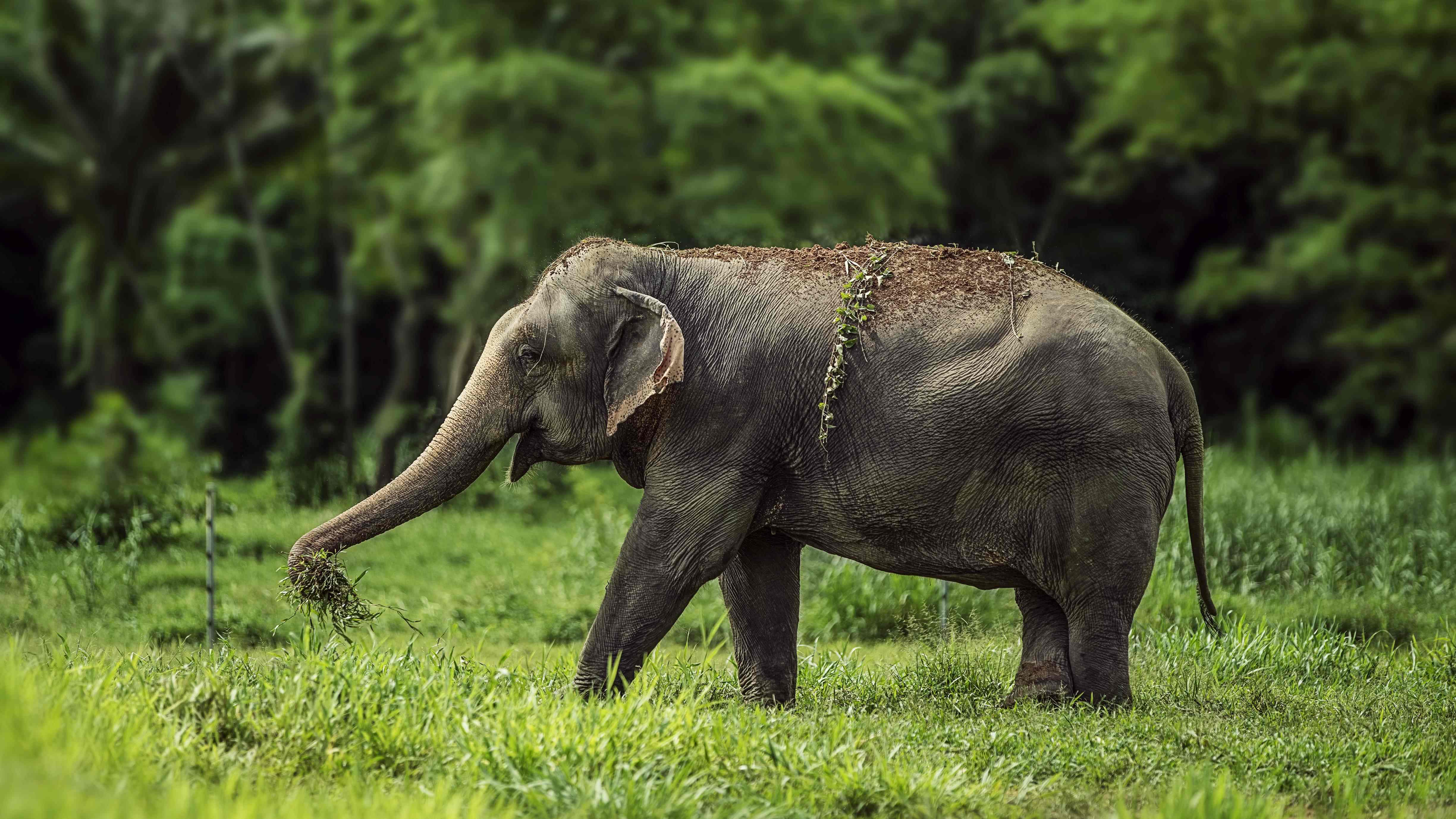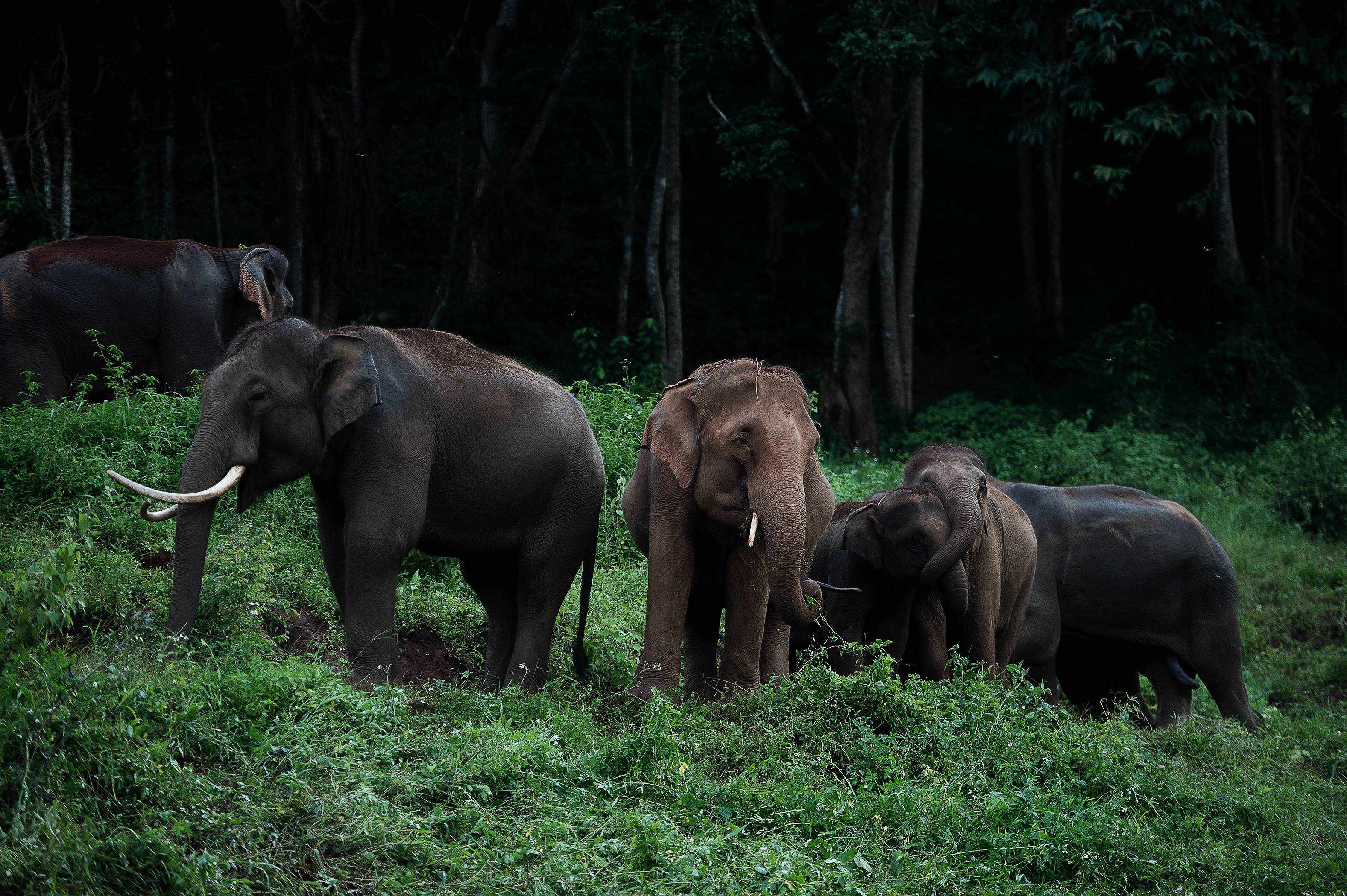
Animal
13:51, 24-Apr-2019
Ranran can't change everyone's mind: Tensions between wild Asian elephants and humans
CGTN
01:57

Fourteen years ago, three-year-old elephant Ranran encountered the most critical moment in her young life. An iron clamp trap had caused fatal injuries to her leg.
Rescue workers had to take her away from her herd to save her life. Fortunately, she survived.
"At the time, Ranran's wound had severely festered. The cut in the shape of a ring was 20 centimeters deep and you could already see the bones. If we had rescued her a few days later, we would have lost her," said Xiong Chaoyong, an elephant conservationist with the Yunnan Asian Elephant Breeding and Rescue Center who participated in the rescue of Ranran.
Xiong used to be a captive elephant keeper, but the encounter with Ranran in 2005 transformed him into an adamant conservationist of wild elephants.
Since saving Ranran, Xiong and his fellow workers have tended to more than 10 other wild elephants.
"Every day at work, I see them act as if they are excited to see me, as if they are welcoming me. I feel something hard to describe. I feel proud of my work," he said.
Conflicts between humans and elephants have persisted in Dai Autonomous Prefecture of Xishuangbanna in southwest China's Yunnan Province, the main habitat of wild Asian elephants in China.

Wild Asian elephants in the forest. /VCG Photo
Wild Asian elephants in the forest. /VCG Photo
Wild Asian elephants, with a population of about 300, are under top-level state protection in China.
To better preserve the endangered species, relevant authorities in China launched an Asian elephant breeding and rescue center in Xishuangbanna in 2008.
But the establishment of the center is not pleasing to everyone. Several kilometers away, villagers who live nearby have a different story to tell about wild elephants.
"It's a mixture of hate and fear, honestly. I hate them because they eat all my crops, but they are under state protection, so I don't dare to hurt them," said Ms. Liu, a local villager.
Due to elephants' raiding crops and causing casualties, human-elephant tension has worsened in Xishuangbanna in recent years, according to Shen Zhongqing, chairman of the Xishuangbanna Association of Asian Elephant Protection.
"Objectively speaking, elephants' habitat is shrinking. Since the forest tenure reform in the 1980s, the way locals farm has changed, and a lot of villagers switched to growing trees with economic value, such as rubber and tea. These forests cannot provide food for elephants, so that in one way explains the conflict," he said.
(Cover image via VCG)
(If you want to contribute and have specific expertise, please contact us at nature@cgtn.com.)

SITEMAP
Copyright © 2018 CGTN. Beijing ICP prepared NO.16065310-3
Copyright © 2018 CGTN. Beijing ICP prepared NO.16065310-3